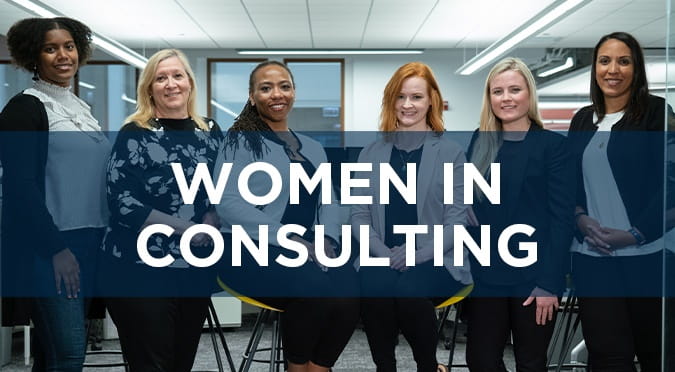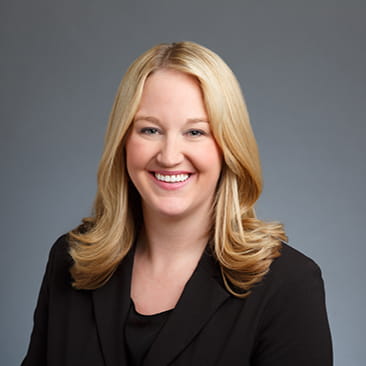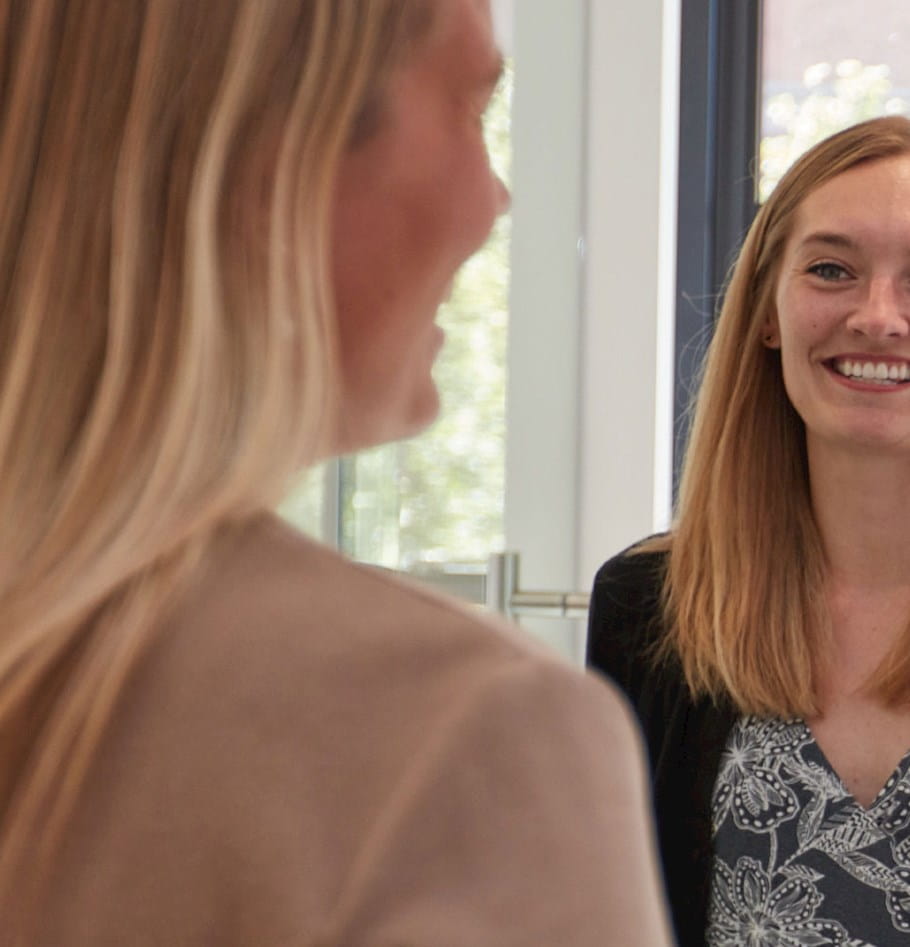
August 2019 | Q&A Spotlight
Women in consulting: A Q&A with Laura Brizgis on making time (for yourself and others)
Women in consulting: A Q&A with Laura Brizgis on making time (for yourself and others)
 This feature is part of a series highlighting the contributions and career paths of women at West Monroe. In technology consulting—traditionally a male-dominated industry—it can be difficult for women to find role models and paths that work for them. The goal of this blog series is to communicate the unique paths and successes of women at West Monroe. We believe that sharing these stories will make women more aware of the opportunity and flexibility available to them in consulting, in technology, and at our firm.
This feature is part of a series highlighting the contributions and career paths of women at West Monroe. In technology consulting—traditionally a male-dominated industry—it can be difficult for women to find role models and paths that work for them. The goal of this blog series is to communicate the unique paths and successes of women at West Monroe. We believe that sharing these stories will make women more aware of the opportunity and flexibility available to them in consulting, in technology, and at our firm.

Laura’s travel snapshots from the Caribbean, Glacier National Park, The Great Wall of China, Tuscany, and at home in Chicago.
Laura Brizgis is a senior manager in West Monroe’s Corporate Transformation practice. She joined West Monroe six years ago after several years with Deloitte Consulting. She has over a decade of experience delivering business transformations related to technology, supply chain, back-office operations, and data analytics for clients in the manufacturing, distribution, automotive, design, and retail industries. Laura is known for her ability to build trusted-advisor relationships with clients through high quality delivery, collaboration, and building a great team atmosphere.
Laura is passionate about bringing creativity into the workplace, staying curious, and coaching/mentoring others. In her free time, Laura loves traveling, practicing photography, entertaining at her home in Chicago, and spending time with family and friends.
As a woman in the male-dominated field of tech consulting, how do you build credibility with your clients?
I recently led an all-female team within a male-dominated industry for a brand-new West Monroe client. Though there may have been skepticism from the client team members at first, we were able to showcase our credibility through execution in solving a complex problem. A big part of gaining credibility was how our team carried themselves in the client meetings. We had to be confident and stay calm, cool, and collected. As a facilitator in a client setting, you set the tone for calmness or chaos that occurs in the room. Whatever you do, and how you react, your client will reflect.
What do you think of male vs. female leadership styles? Are they different?
I think everyone has different working styles. As a woman, especially if you’re Type A, you might face more bias because of your style. You have to be comfortable speaking your mind, but – and this is true for everyone – you have to listen first to understand. People will not listen to you unless you genuinely listen and get their perspective first.
Your job as a leader is to facilitate conversations that drive to conclusions that you support. This is a very different mindset from the one I held earlier in my career. My role has become much less about doing and much more about enabling others to work effectively together to achieve results.
How do you build your strong mentor-mentee relationships?
As a mentor, you have to be vulnerable, and you have to be open-minded. And you have to genuinely mentor without boundaries. One of the hardest but most valuable parts of mentorship is being willing to have the tough, honest conversations. As a mentor, you cannot be afraid to say, “There is room for improvement in how you did ‘XYZ’.” But you also need to be able to say, “Let me help you do this better next time,” and work hard together to achieve improved results.
It is so important to maintain mentor-mentee relationships even after career moves and life changes occur. If you do not invest in these relationships, they will rapidly dwindle. I try to keep in consistent contact with all my mentors and mentees from West Monroe and previous companies. I also view my clients as mentors; I invest time with those where I believe I can learn and grow from their expertise. This Summer I had the chance to visit one of my client mentors at his home in Portugal, and it was a great reminder of how important relationship building is to my life.
There is sometimes a perception that women struggle in high-pressure business development roles. What do you think of this stereotype? How has your experience been in BD?
Business development is all about relationships. It’s about making people comfortable that you don’t have ulterior motives.
Especially early in your career, business development is often more about looking for opportunities within existing relationships rather than seeking out net-new ones. A large part of this is based on delivering excellent work on every client engagement. To build deeper relationships, you must become an integral part of the client team.
Never be the consultants in the corner. Go out of your way to interact both personally and professionally with your clients; join their meetings, ask about their life outside of work, and you will be surprised at how quickly you become a trusted colleague or friend – one that they will be genuinely interested in continuing to do work with, which, in turns, drives an organic form of business development.
What tips do you have for those looking to establish a better balance between work and personal life?
I set firm boundaries between work time and down time. I don’t immediately open my laptop when I get home – in fact, I’ve consciously decided to use my time at home to relax and recharge. Outside of something urgent coming up, I keep my laptop shut at home, and I hardly ever respond to email on my phone. If I’m going to respond to something, I’m going to sit down and put thought into that response. This helps me avoid being reactive, which usually becomes detrimental. It’s important to set boundaries like this early, as it’s much harder to change them once others are accustomed to being able to reach you 24/7. As long as you’re results-oriented, no one cares!
You’re a strong believer in taking time to recharge. How do you carve vacation out of your busy schedule, and how do you help your team prepare for your time away?
There are so many people who say, I don’t have time to take my PTO. That usually just means you are not carving out the time for yourself.
I schedule and share my vacation dates months in advance so that my team can prepare. I set expectations for what should be achieved while I’m out, and I also brief team members individually on my perspective on upcoming decisions so that they can fill in for me on emails and meetings. You have to let go of a little bit of control. There should be a plan, but then you have to trust in your team to make it happen while you’re gone.
This post was contributed by West Monroe’s Women’s Leadership Network, an employee resource group that helps women thrive at West Monroe. We empower individuals to learn and grow via four major initiative areas: education, mentorship, collaboration, and communication. Want to know more? Explore our culture and career opportunities by visiting our careers page.

